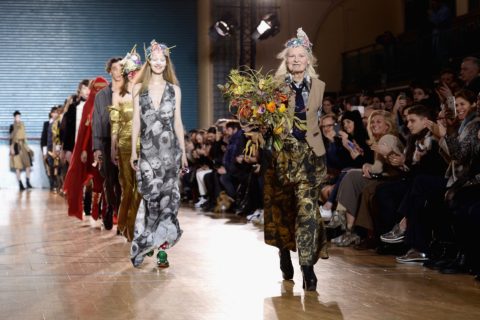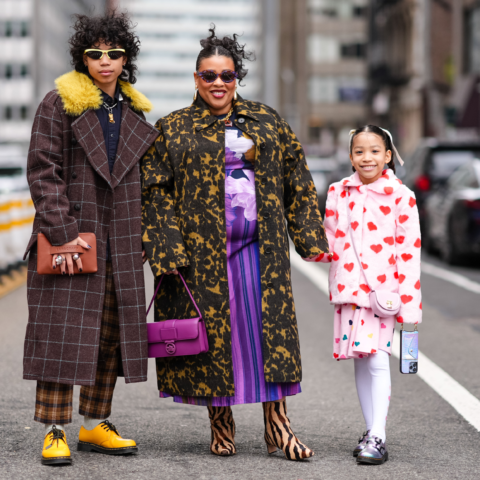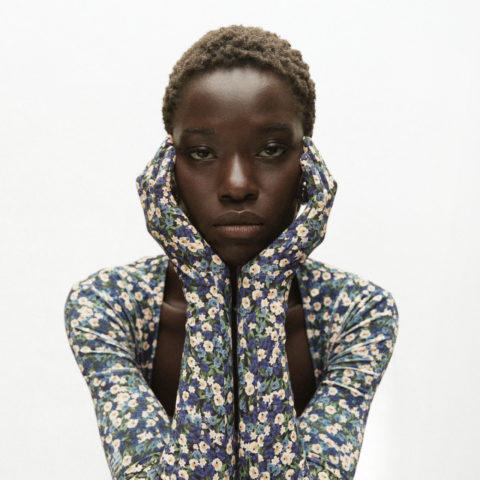Vivienne Westwood Was Always Going to Hate the New Documentary About Her
“I always had this feeling that maybe, and this could be completely wrong, that they would try to manipulate me later on,” says the director
When Lorna Tucker began filming her documentary on Vivienne Westwood, friends and family of the designer warned her that no matter how the film turned out, Westwood wouldn’t like it. Armed with that knowledge, she began filming footage for “Westwood: Punk, Icon, Activist,” an affectionate portrait of the transgressive designer featuring scenes as intimate as the designer rolling out of bed in the morning. However, those initial predictions turned out to be correct. Vivienne Westwood has lashed out against her portrayal in the film, which she called “mediocre” in an eviscerating statement issued from her brand.
— Vivienne Westwood (@FollowWestwood) January 19, 2018
Tucker first met Westwood when some musician friends of hers alerted her that Vivienne Westwood was coming down to their studio to record a rap song with Josh Homme from Queens of the Stone Age. The director grabbed her camera and headed to the studio. “When she walked in, she was wearing 6 inch high heel platforms, a beautiful dress and had long red hair. I was completely blown away,” Tucker recounts in a phone interview from her home base in London. From there, the pair struck up a friendship based on Tucker’s passion project film about the history of forced sterilization of Native American women in the US. (The feature, Amá, also comes out this year.)
The most truly ironic part of the Westwood documentary debacle is that Tucker and Westwood had already worked on a separate film together. In 2013, the Vivienne Westwood brand recruited directors to pitch ideas for a fashion film. They ended up working together on Red Shoes, a short film based on the Hans Christian Andersen story starring model Lily Cole and Westwood invited Tucker send an idea in. Shortly after, Tucker suggested they work together on a biographical film and Westwood agreed. “I proposed to do a documentary with her that was her life story and showed she’s always been an activist,” Tucker says.
From the very beginning, filming was rife with tension. “I always had this feeling that maybe, and this could be completely wrong, that they would try to manipulate me later on,” she says. The label wanted a film focusing on Westwood’s environmental activism, but Tucker resisted. “I said, ‘That’s not going to reach a wide audience, because if you want to engage an audience you have to take them on a journey,” she says. “I really had to stand my ground to keep filming.”
What emerges from the murkiness is a reticent portrait of a difficult woman. Nearly the entire time Westwood is on camera, she gripes about having to excavate her past, and acts as an unwilling subject of a biographical film. On the footage of Westwood grumbling, “Other directors were like, ‘Why did you put that in there?’” says Tucker. But it was entirely intentional. “I want you to cringe for me because it’s difficult,” Tucker says. But this is a documentary about a fashion legend, not an episode of Nathan for You. What Tucker refers to as “comedy moments” don’t necessarily translate as funny, just painfully awkward.
Tucker admits she didn’t know much about Westwood before she began filming. “Whenever I’m taking on a subject I never research too much. I always want to let that come out, my journey on camera, so the audience can learn all the nitty-gritty bits as I do.” But according to Tucker, the most interesting stories surfaced when Westwood knew she wasn’t being filmed. “When the camera was off, the bits she would tell me, the little anecdotes and the inspirational stories were the things that really blew me away. But at the time Vivienne was only talking to any camera about the latest political thing she was pushing. It was so hard,” she opines.
Ultimately, “Westwood: Punk, Icon, Activist” is a portrait of two uncompromising artists: Vivienne Westwood and Lorna Tucker. When Westwood dissociated herself from the film, Tucker second-guessed her decision to not take out the parts that upset Westwood. “I thought, ‘Shit, why was I so adamant that it was my film that I upset her?’” says Tucker. “But the most rewarding thing has been people coming up to me saying it inspired them and changed them. For me that was enough.”








